International partnerships
Participating in European consortia increases the impact of your work. Discover our role as a design partner in international collaborations.
Cooperation between experts from human, public and veterinary health care is crucial in the control of infectious diseases in humans and animals. At the same time, during an outbreak of bird flu, for example, there are all kinds of conflicting interests in all these different sectors.
Can persuasive technology – such as a serious game – help promote that much-needed interdisciplinary collaboration? An important research question within the ‘eZoon’ project of the University of Twente’s Centre for eHealth and Wellbeing Research, an international partnership in which 8D Games was a consulting and development partner.




Johan likes to think along!
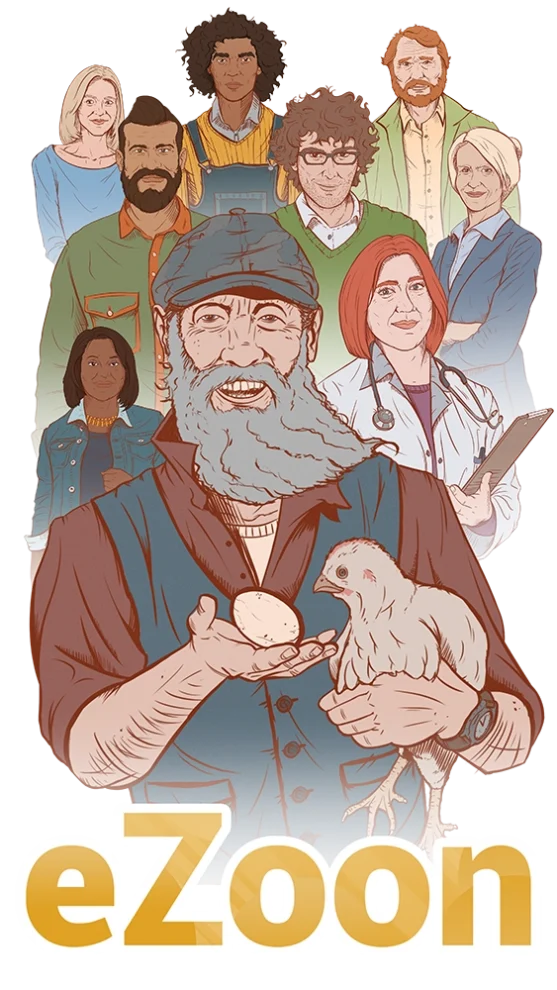
Zoonoses are diseases that can be transmitted from animals to humans. In the event of an outbreak, action must be taken quickly. At the same time, there are many interests and considerations at play. What is a good health care decision can easily provoke public or political outrage.
Researchers at the University of Twente began by identifying and analyzing all the actors that come into the picture during a zoonosis outbreak. A total of 36 different “roles” and stakeholders were identified – which says a lot about the enormous complexity of the subject. Key actors were then interviewed to understand their perspectives and dilemmas.
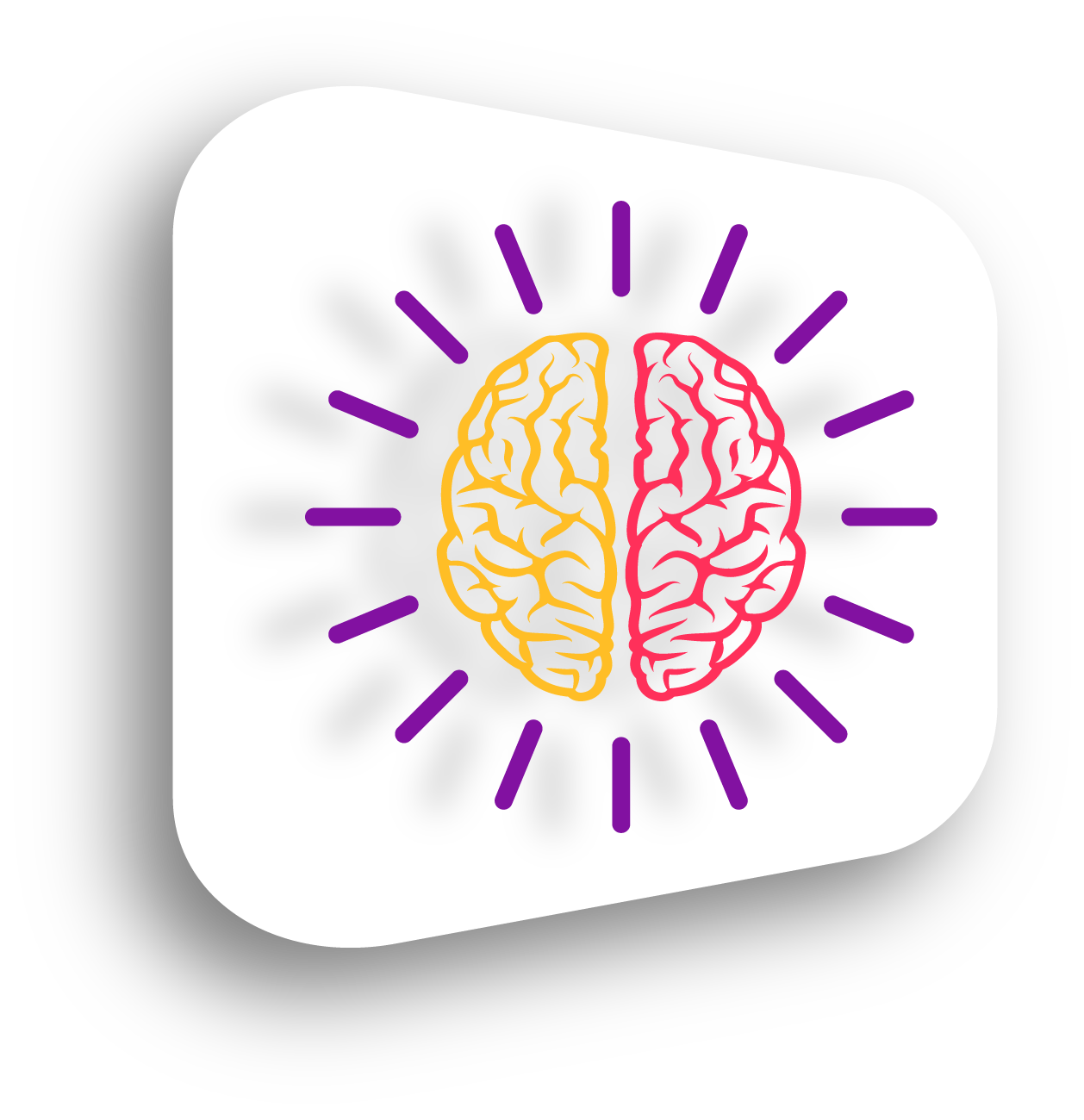 Approach
ApproachOne of the conclusions from the problem analysis was that professionals from the human, public and veterinary health care must become more aware of each other’s perspectives and the importance of working together. This is where the serious game came into the picture as a possible solution direction. Based on the theoretical foundation and the desired game concept of the researchers, 8D Games worked on the design, game design and programming of the game. We also advised on AVG legislation and the responsible collection and visualization of game data.
In the game, players are presented with a practical case: there is an outbreak of bird flu and difficult decisions must be made. What would you do at this stage of the outbreak, based on your expertise? And what happens to your opinion if you also ask another actor for advice? Throughout the game, players gain insight into the difficult choices all actors must make at different stages of a zoonotic outbreak. To really give these perspectives a face, we designed different characters representing different sectors or stakeholders, from farmers to politicians, in a detailed illustration style that suits the needs of the target audience.
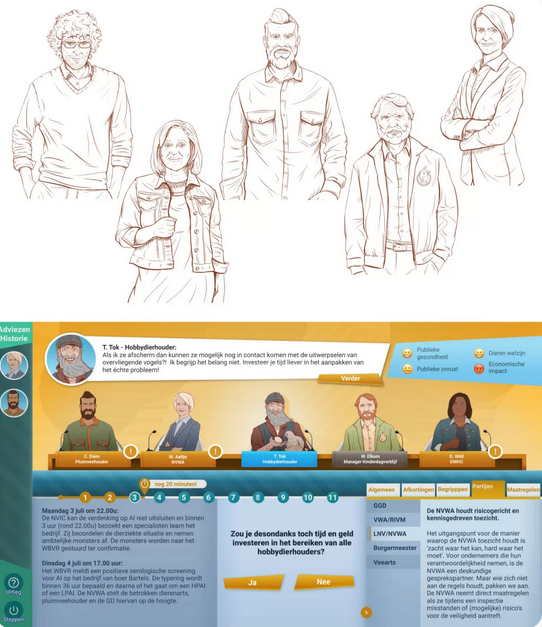

Assistent Professor

 Results
ResultsIn the serious game eZoon, there is no complete “right” or complete “wrong” – let alone a winner. That would be too short-sighted in a game about complex decision-making with many dependencies and nuances. The focus of the serious game is therefore not on testing knowledge or protocols, but on actively thinking about and weighing the dilemmas involved in crisis management around a zoonosis. Professionals thus gain more insight into the motivations of colleagues from other disciplines. By playing, they see the full scope of decision-making. The conclusion of the game helps perpetuate this knowledge. Users receive a visual representation of their own results showing which interests they are most inclined to represent.
Such tools and awareness interventions are an important prerequisite for improving interdisciplinary cooperation in complex decision-making. Moreover, game sessions with professionals offer plenty of starting points for further knowledge gathering and research. Not only into the effectiveness of the game, but also to gain more insight into the end users’ view of the issues at hand. For example, by facilitating or observing a game session as a researcher. In this sense, the serious game not only a result of research, but also a tool for new research.
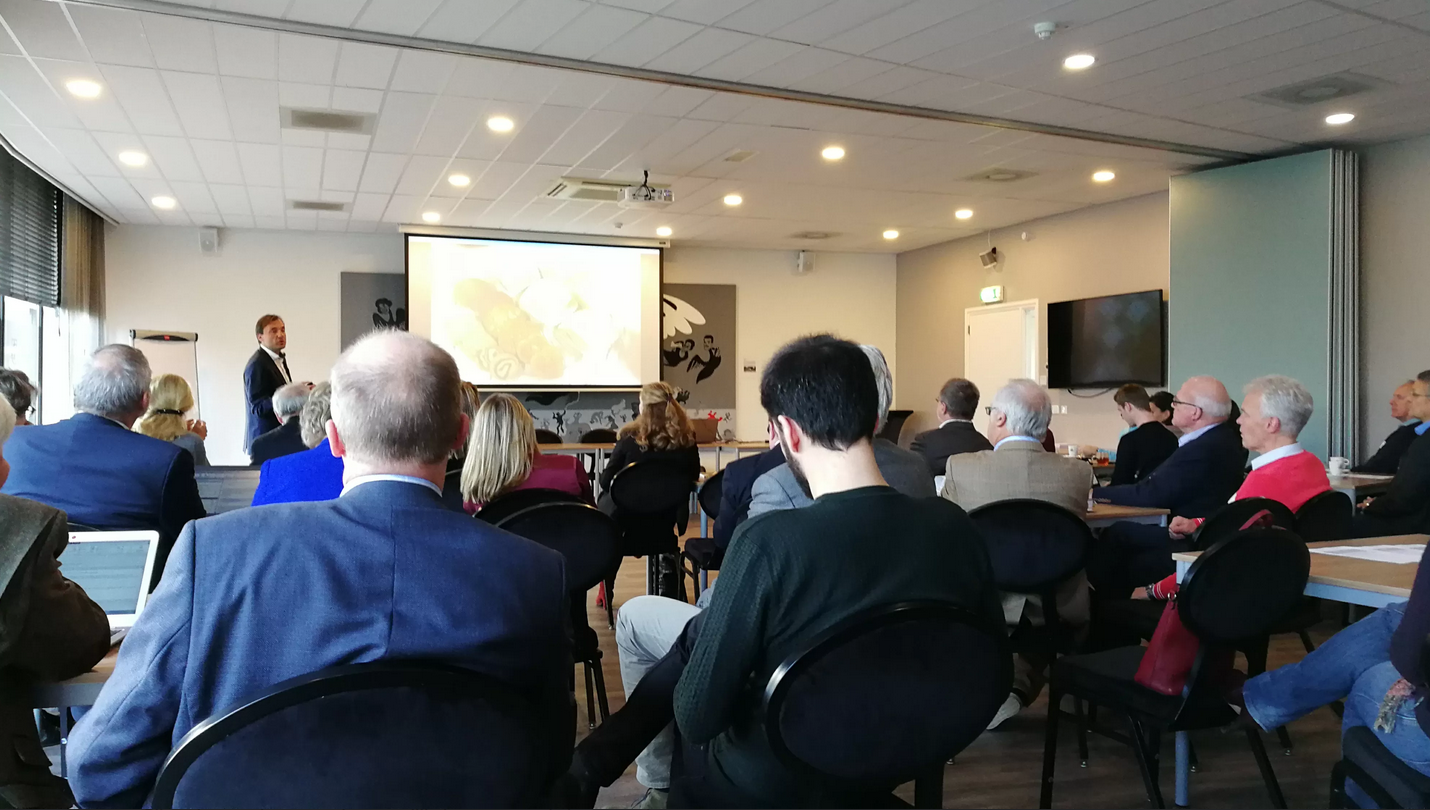
In all our projects, we work according to a proprietary social design methodology that we have refined over the past decade based on experience. In our approach, we combine the best from different design-oriented methodologies, with co-creation with stakeholders at the center. The beauty of this approach is that we allow room for directional changes based on co-creation, while keeping the momentum going by making task allocations and schedules as concrete as possible.

Johan likes to think along!
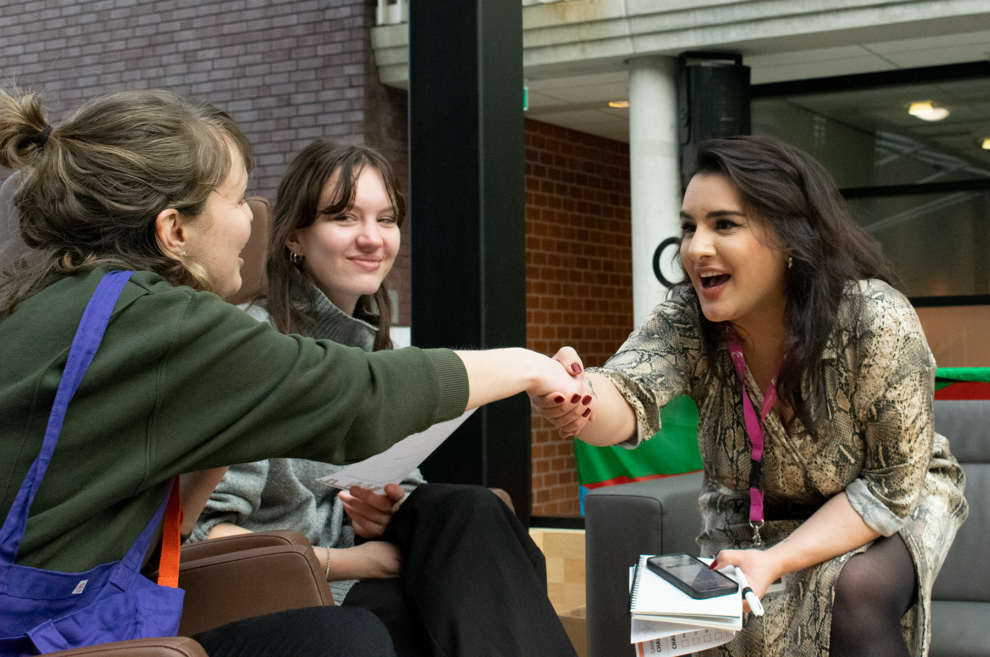
Participating in European consortia increases the impact of your work. Discover our role as a design partner in international collaborations.
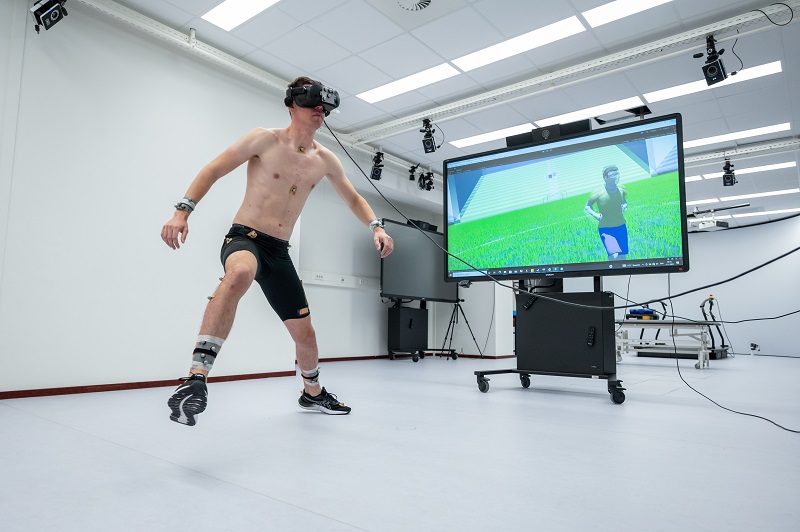
Serious Games as a Research Tool Games as a Method Serious games can contribute to scientific research in many different ways and at many different stages. Think of collecting quantitative…

Participatory research can solve three bottlenecks that researchers face: data collection, effective knowledge transfer and dissemination. Potential forms are game-based research and design-based research. We are happy to inspire you with examples from our portfolio.